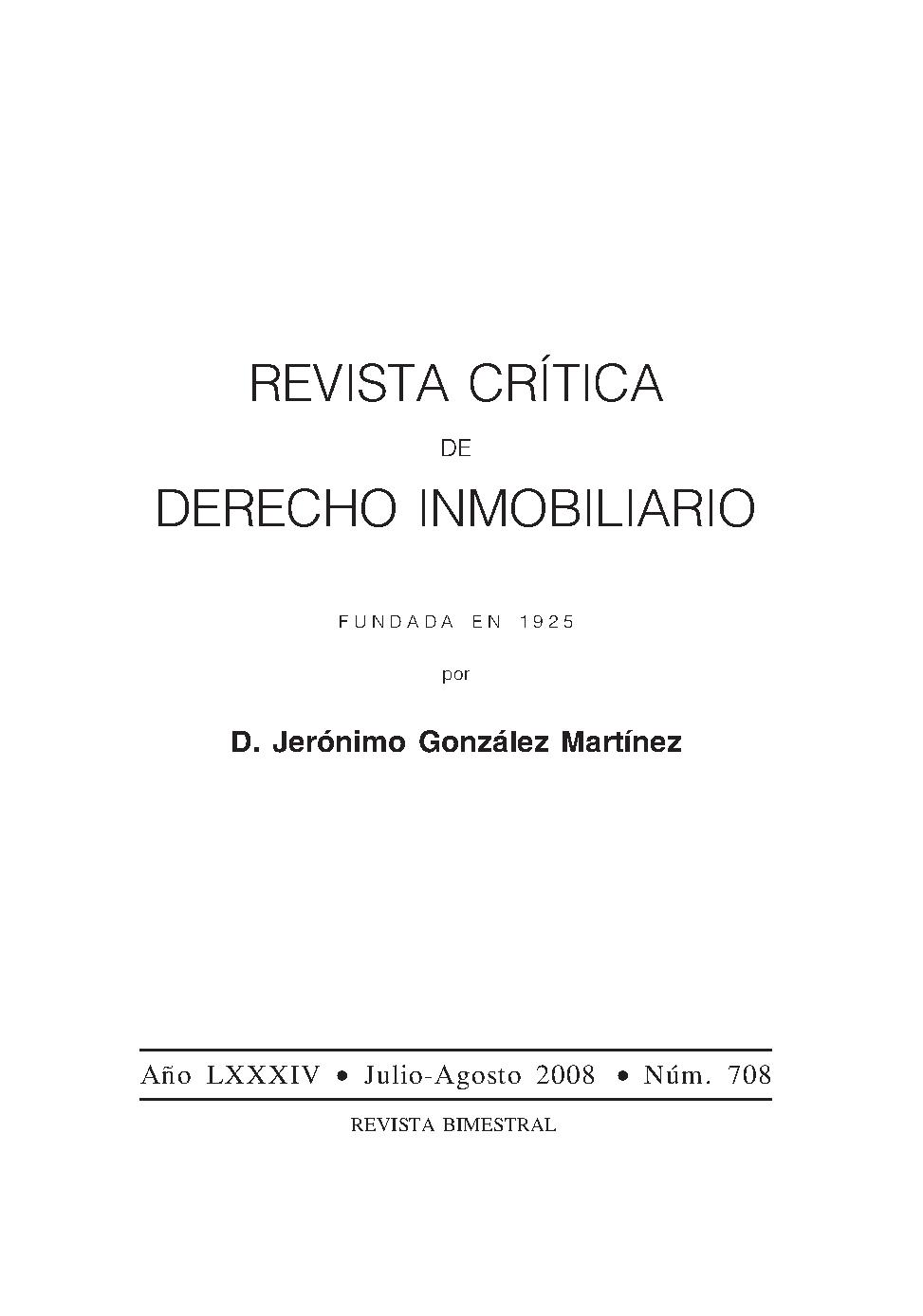LA ENAJENACIÓN DE LA VIVIENDA ARRENDADA Y SU RELACIÓN CON LA SEGURIDAD DEL TRÁFICO JURÍDICO INMOBILIARIO.
Keywords:
ALIENATION OF LEASED HOUSINGAbstract
This paper analyses the legal consequences of alienating leased housing under article 14 of the Urban Leasing Act. A distinction is drawn between leases for less than five years and leases for more than five years. In the case of a lease for less than five years, the purchaser steps into the landlord's legal position for the legal minimum of five years, altogether separately from the purchaser's possible capacity as a third party in a mortgage situation. In the case of a lease for more than five years, the letting arrangement also continues after alienation, but its term is different depending on whether or not the purchaser meets the requirements in article 34 of the Mortgage Act; if so, the purchaser must put up with the letting arrangement only for the time remaining until the five years are up, and if not, the purchaser must put up with the letting arrangement for the full accorded term. If the parties have accorded that the lease will terminate if the housing is alienated, the purchaser must also respect the time remaining for the fiveyear term to expire.









